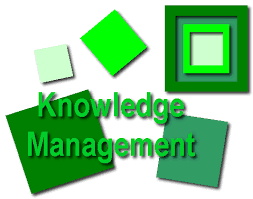Knowledge is key for decision making and strategy building. But knowing does not always translate into doing it. It is very critical for organizations to implement right and effective tools for managing organizational knowledge to build and sustain competitive advantage.
Knowledge Management, a term, rather a concept which originated about two decades ago, in a layman language means organizing an organization’s information and knowledge holistically. In a more expert opinion it, Knowledge management is the process of capturing, distributing, and effectively using knowledge and intellect of the people for the wholesome benefits. It is a subject that promotes an integrated approach to identifying, capturing, evaluating, retrieving, and sharing all of an enterprise’s information assets. These assets may include databases, documents, policies, procedures, and previously un-captured expertise and experience in individual workers. Thus, primarily Knowledge management is all about managing an organization’s biggest asset “Intellect of its workers”.
Knowledge Management facilitates creation, consolidation, transformation, sharing, distribution, and application of knowledge. No two organizations can follow the same methodology to implement knowledge management. And it is not necessary, if an approach works for one organization, other organization can use it as a savior too. Knowledge is very subjective by definition and varies from one organization to another. Even if organizations are in same business domain, knowledge management methodology may be same but implementation approach may be completely different.
Why Knowledge Management??
- Improves ability of the organization to solve a problem effectively.
- Builds new culture that promotes knowledge sharing and constant learning while preserving and recording appropriate information.
- Enhances knowledge processing.
- Builds an organization that is resilient and adaptable in the face of change.
- Helps improve team work and delivery of outcomes.
- Helps the employees, clients and even the stakeholders to b properly informed and well versed with the situation.
- Develops an environment of continuous change and improvement.
Thus, there is a dire need for this evolving concept of knowledge management to be implemented in an organisation’s development policies.



19 Comments. Leave new
Great work Avni !!
Completely agree with you. It’s an interesting topic to write about. 🙂
Good work. Nicely written!
Very well explained!
Awesome one…keep writing:);)
Fantastic article. It is something new I have read here. Thanks for posting it.
Every one should have to know this.. Good..!
waaow! great work.
Agree.. Well done..
The article exemplifies ,”make the strength of an employ effective and weakness irrelevent”
Nice topic. Few know that such a term even exists.
Interesting article.good work
Very intresting and helpful article
good one 🙂
Precise and well formatted.
Well done!
good topic
Interesting one!
nice work